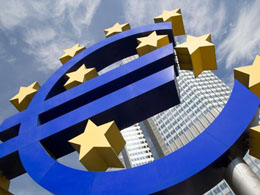
European Central Bank repeats its 2012 stance on digital currencies
At a speech in Rome yesterday, Yves Mersch of the European Central Bank reiterated the bank’s stance on cryptocurrencies from 2012, but warned that such currencies should not be ignored. Essentially, Mersch’s comments were that digital currencies were still too small to be of any consequence at the moment — a key part of the Virtual Currency Schemes report from October 2012, when bitcoins were trading for tens of dollars. “Many media commentators have been wondering what impact these currencies will have on retail payments and even on central banks,” he said. “I agree that virtual currency....
Related News
The European Central Bank (ECB) has reiterated its position on digital currencies. In a speech delivered at the at the ECB/Banca d'Italia Workshop on Interchange Fees, Yves Mersch, Member of the Executive Board of the ECB, said digital currencies are still too small to have an impact on retail payments and central banks. Mersch reiterated what the ECB said two years ago in its Virtual Currency Schemes report, published in October 2012. In the meantime digital currencies have gained quite a following, although they are still not even close to what could be described as 'mainstream'. In any....
While countries like Bangladesh and Ecuador are outright banning bitcoin and other digital currencies, Italy has taken an interesting first stance on the matter. In a notice on virtual currencies, published on January 30, the Central Bank of Italy acknowledged the use of virtual currencies as legal in their country. The Central Bank of Italy started off their notice with an explanation of digital currency, then noted that the Financial Action Task Force (FATF) published a paper on digital currencies in relation to money laundering and terrorism. The Central Back then explained that the....
The European Central Bank (ECB) has proposed a directive of the European Parliament and of the Council stating that ‘virtual currencies do not qualify as currencies from a Union perspective,’ and wants digital currencies to be explicitly defined as not legal currencies or money. In a document titled, Opinion of the European Central Bank [PDF], the ECB is proposing amending Directive (EU) 2015/849 on the prevention of the use of the financial system for the purposes of money laundering or terrorist financing and amending Directive 2009/101/EC. According to the ECB, the use of digital....
The European Central Bank has released a new report on digital currency, describing it as "inherently unstable" but potentially transformative in the realm of payments. The ECB study builds off an earlier study published in 2012, offering both a general overview of digital currencies as well as follow-up analysis on the potential benefits and risk of using so-called virtual currency schemes (VCS). The central bank, which oversees national-level central banks in the eurozone, suggested in the report that digital currencies could impact the ECB's ability to function. However, it stopped....
The European Central Bank (ECB) has published a report on virtual currencies that recognizes their dramatic growth in recent years and analyzes some of their dynamics and challenges. Titled "Virtual currency schemes - a further analysis," the 37-page report points out that virtual currencies have risks. However, it notes that currently, bitcoin is used for around 69,000 transactions per day worldwide, compared with a total of 274 million non-cash retail payment transactions per day for the European Union alone. The ECB's 2012 report on virtual currency examined the extent to which virtual....





